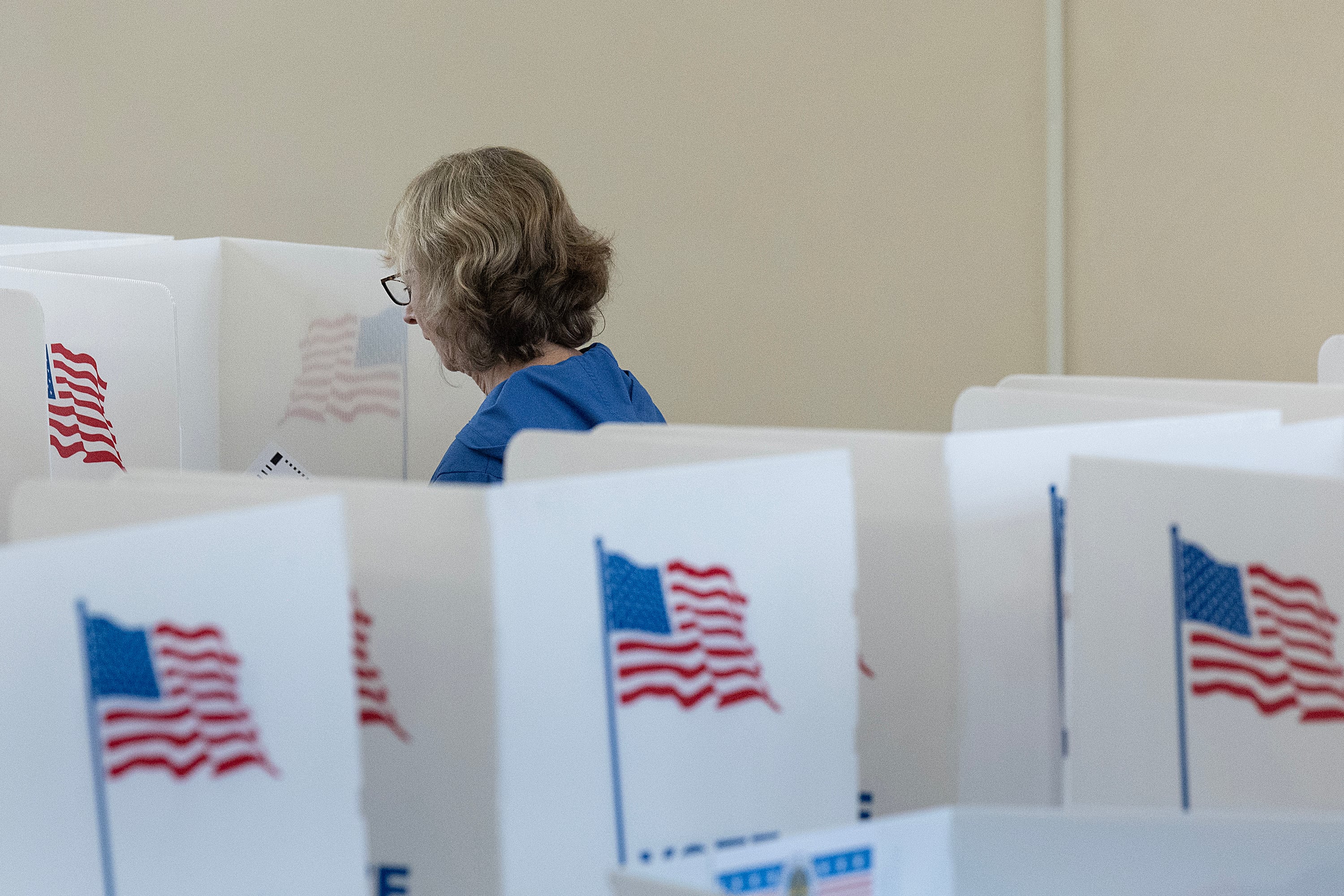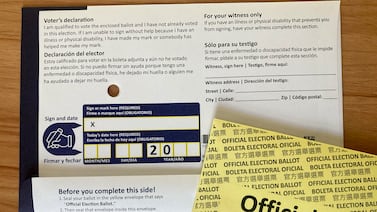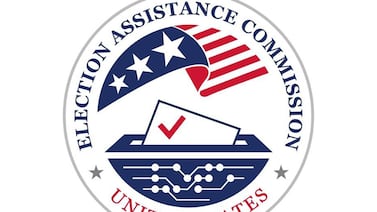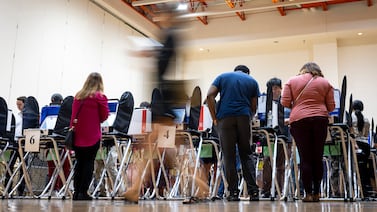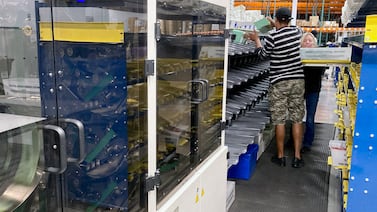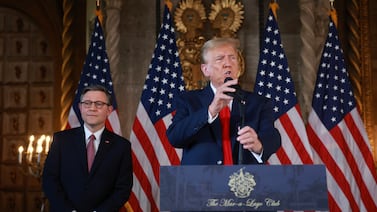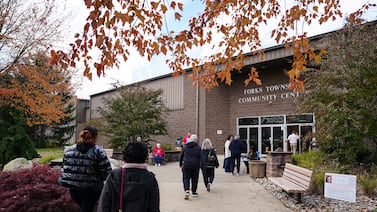Votebeat is a nonprofit news organization reporting on voting access and election administration across the U.S. Sign up for our free newsletters here.
In Michigan, Democrats have taken advantage of absentee voting at higher rates than Republicans. But the first person to vote in Harrison Township using the state’s new early in-person voting option was a Republican activist, Brian Pannebecker, who was on his way to a Donald Trump rally where he would join the former president on stage and encourage supporters to vote early.
“If we don’t use every tool possible to vote and get people’s vote banked as early as possible, then we’re going to get crushed on Election Day,” he told Votebeat.
Pannebecker was one of a group of voters from across the political spectrum Votebeat spoke with to understand who was taking advantage of the new early in-person voting program, and why or why not.
Their motivations varied, but some did not use the option because they had not heard of early in-person voting, and others did not understand the difference between that and absentee voting. Still others knew of the new option but wanted to vote on the day of the primary because they enjoy the civic action.
Detroiter Chris Harmon said he appreciated the change, though he thought it was a minor one and was skeptical that it would boost turnout.
“I like the security of it, and it’s easy, and I go home knowing that my vote went through that machine,” he said.
The presidential primary marks the first statewide election in which Michigan has adopted the new rules required by Prop 2, a 2022 citizen ballot initiative approved by 60% of voters that aimed to expand voting access.
Among other provisions, it mandated nine days of early in-person voting, which began on Feb. 17 for the presidential primary and ran until Sunday. The new process is similar to absentee voting, but includes a significant procedural difference. A Michigan voter could previously obtain an absentee ballot, fill it out, and hand it to an election official in a clerk’s office.
The new law gives voters the opportunity to place their ballot directly in the tabulators, just as they would on election day. The vote is immediately counted by the machine, instead of counted later, as would be the case with an absentee ballot.
The secretary of state on Monday reported about 78,000 people statewide had taken advantage of early in-person voting, while 934,000 had returned absentee ballots so far.
Detroit resident Michael Curry said he normally votes by mail because he has health issues that make it difficult for him to visit a polling place. But on Thursday, he went to the Detroit Bureau of Elections because the state sent him a ballot for the Republican primary by mistake and he wanted to vote in the Democratic primary.
Curry said he would put the ballot in the tabulator himself instead of handing it to an election official.
“And I’m going to feel good about it,” he said, but added he would return to voting by mail in the future.
Other voters, including Val Stevens of Hamtramck, were less inclined to cast ballots early.
“I like participating on Election Day because it feels like I’m interacting with my community,” Stevens said. “It’s nice to see people I know personally while we’re all participating in the voting process.”
Hamtramck resident Jeff Fournier, Stevens’ husband, votes in every election and is civically engaged, but said he had never before heard of early in-person voting.
“That’s cool,” he said when the process was explained to him, but he added that “it would be even cooler” if election day were a holiday.
He said he has voted absentee in the past when he is out of town but tries to make it to the polls on the day of the election. Though he supports the expansion of voting access and thinks early in-person voting is a good idea, he said he’ll still vote in person on Tuesday.
“Honestly, I think of alternative ways to vote as something that helps people who otherwise have trouble voting,” he said.
Among those who did not understand the difference between the two options is Hamtramck resident Mo, a naturalized U.S. citizen originally from Yemen who said he did not feel comfortable sharing his full name.
“If the vote counts either way, then I’m happy with doing it either way,” Mo said.
In St. Clair Shores in Macomb County, Republican Chris Vitale, a city council member, said he is also encouraging Trump supporters to vote early, even if he wishes it weren’t an option. He said Michigan has roughly an equal number of Republican and Democratic voters who are politically active and will vote in most elections.
But most of the electorate, Vitale said, are not consistent voters, especially if there is something else they need to do on election day besides casting a ballot. He said this group is more likely to utilize absentee or early in-person voting. Democrats in Michigan have been much more successful about mobilizing liberal-leaning voters in that group to vote, he added.
“You can’t ignore that vast group, and if one side is going to go after it, then the other side is going to have to go after it, too. We’ve got to capture those people,” Vitale said.
Pannebecker, the early voter in Harrison Township, said he did not trust the security of early in-person voting, noting that other countries, like France, only allow voting on Election Day, and “there is no reason the US can’t either.” (Experts have said there are several reasons why France, a much smaller county with one race on the ballot, can handle single-day voting more easily.) But Pannebecker said he will still continue to urge Republicans to vote early.
“I’m walking the walk and practicing what I preach even if I don’t like it,” he said. “I think we should have to vote in one day ... but it gives everyone a 10-day window to get their ballot in, so if they are sick on election day, or they do have a car accident or they are called out of town on business, then their votes are already banked.”
Votebeat contributor Tom Perkins is a freelance reporter in Hamtramck, Michigan.


